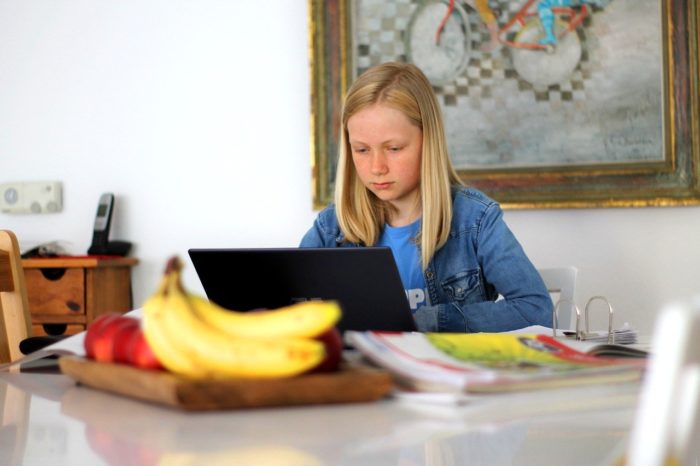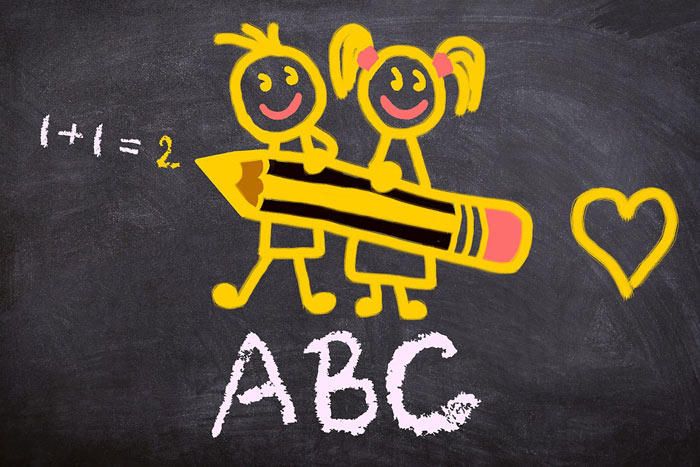How to Teach Kids More Without Making Them Hate School?
Even before children enter school, many of them already have either a clear craving for knowledge or a complete indifference to the educational process. How should parents behave and how should they teach kids so that the child himself strives to develop and learn new things?
In the modern world, many parents focus on the early development of their children. By the first grade, many kids already know how to read, count, write, and even learn a foreign language. However, this approach has a downside: preschoolers are so overloaded that they often lose motivation and the desire to learn.
We are going to tell you how to instill in children the love of knowledge and never go too far.
Do not overdo it
Conversations with other parents near the sandbox often resemble a competition for the title of “The most gifted child”: “Our kid is already learning Chinese at the age of two!”, “And ours has defeated his father at chess!” Of course, the parents’ desire to give their child as much knowledge as possible is commendable. However, adults forget an important point: children must develop according to their age.
For example, drawing on the walls or messing the closets is not vandalism. It is just one of the ways for the kid to learn about the world and its boundaries. The same applies to perseverance: the attempts to make a three-year-old child sit at a desk for half an hour will end in hysteria both for the kid and the mother. It is important not to demand from children what they are not yet ready for – for the sake of their own ambitions. But your own example works great. You can take a colorful book and sit down to read it in the child’s line of sight. After a few minutes, the kid may show interest.
It is known that the children, whose parents are not inclined to offer the options for pastime and never impose their desire to do something, develop their cognitive interest much faster and more naturally.
By their nature, children are inquisitive. Therefore, at the age of 2.5 years, they are constantly asking “why”. At such moments, it is important not to ignore the children, but to explain everything in an accessible language. If the child hears the words “Leave me alone,” “You have already asked this,” “I don’t know,” his interest in new knowledge will gradually fade away, and he will stop asking at all.
Play
Children’s play is the reproduction by children of the actions of adults and the relationship between them, a way of interpreting reality, the development of imagination and speech apparatus. Playing is not pampering and useless pastime, as it might seem, it is the main and most important way of knowing the world and finding your place in it. New knowledge is also much better assimilated by children through play.
You can come up with a fairy tale or a quest in which the child will be a superhero who learns the world. This allows you to keep the attention and enthusiasm of children for a long time. Or you can go with your child on a real trip to a park or forest, where he will look for treasures. In the process, the kid will also learn the names of trees. This will be remembered much better than cramming over a textbook. At school, children can team up and work on a specific project and then share the results.
Repeat and discuss
“Repetition is the mother of learning” – this proverb is actually a formula for a successful educational process. German psychologist Hermann Ebbinghaus investigated the mechanism of memorization and deduced the so-called “forgetting curve”. He found out that a person begins to forget information immediately after studying, and on the second day he loses more than 50 percent of his knowledge. One of the most effective ways to memorize is active repetition. It is extremely useful for children to retell what they have read and to discuss what they have seen.
However, you should not turn this process into some kind of a test or exam – “tell me what this book is about”. Genuine adult interest encourages the child to share naturally. Talk to your child and ask: “What are you reading? And who is this character?” Quite quickly, you will be able to move away from guiding questions, and the child himself will be happy to retell you the content of the film/book/conversation at school, as soon as he realizes that it is really important for you, and you will not only listen, but also give your comments.
For children of primary school and preschool age, conversations and discussing the illustrations can be very useful. All of these techniques develop thinking, vocabulary and speech apparatus.
Add significance
The education system is structured in such a way that children are assessed for their knowledge. In fact, children need their contributions to be noticed and noted as often and as much as possible – this gives them motivation and incentive to move on. However, it is important for the child to create a situation of success that will not necessarily be judged on a certain scale. The more often the children find themselves in a situation of realizing their “I did it!”, the less dramatically they will subsequently perceive their mistakes and failures. It is very easy to create a situation of success – you do not need to have great expectations.
When giving a child a simple task, for example: “please make your bed,” it is important to emphasize that the child has coped with the task, no matter how.
The parent needs to give up the desire to immediately correct the imperfect position of a pillow and to say “it should have been like this.” What an adult perceives to be obvious and simple will not necessarily be such for a child. Maybe the kid didn’t want to do anything at all, but made an effort on himself and fulfilled your request? Maybe he is worried that he will not be able to do it as carefully as his mother and worries that he will be judged for this?
And now let’s imagine that the parent’s phrases “let me help you”, “it should have been like this”, “you can’t do anything normally”, express what the child feared – criticism, or a situation of invalidity – I tried so hard, I did what was asked of me, and you say it is all wrong!?
It is important that you focus on praise rather than criticism. In case of failure, you should not scold the child, it is better to offer him support and understanding that you are ready to help at any time.



